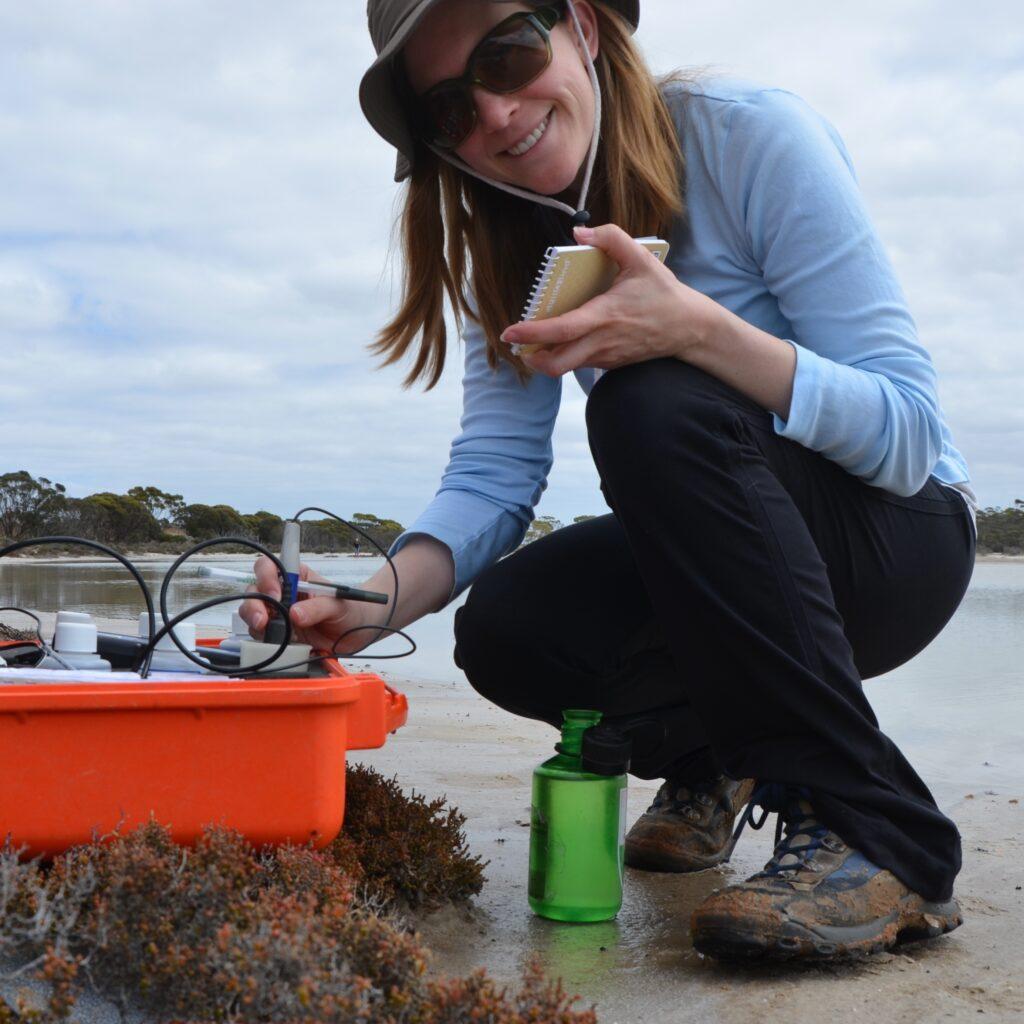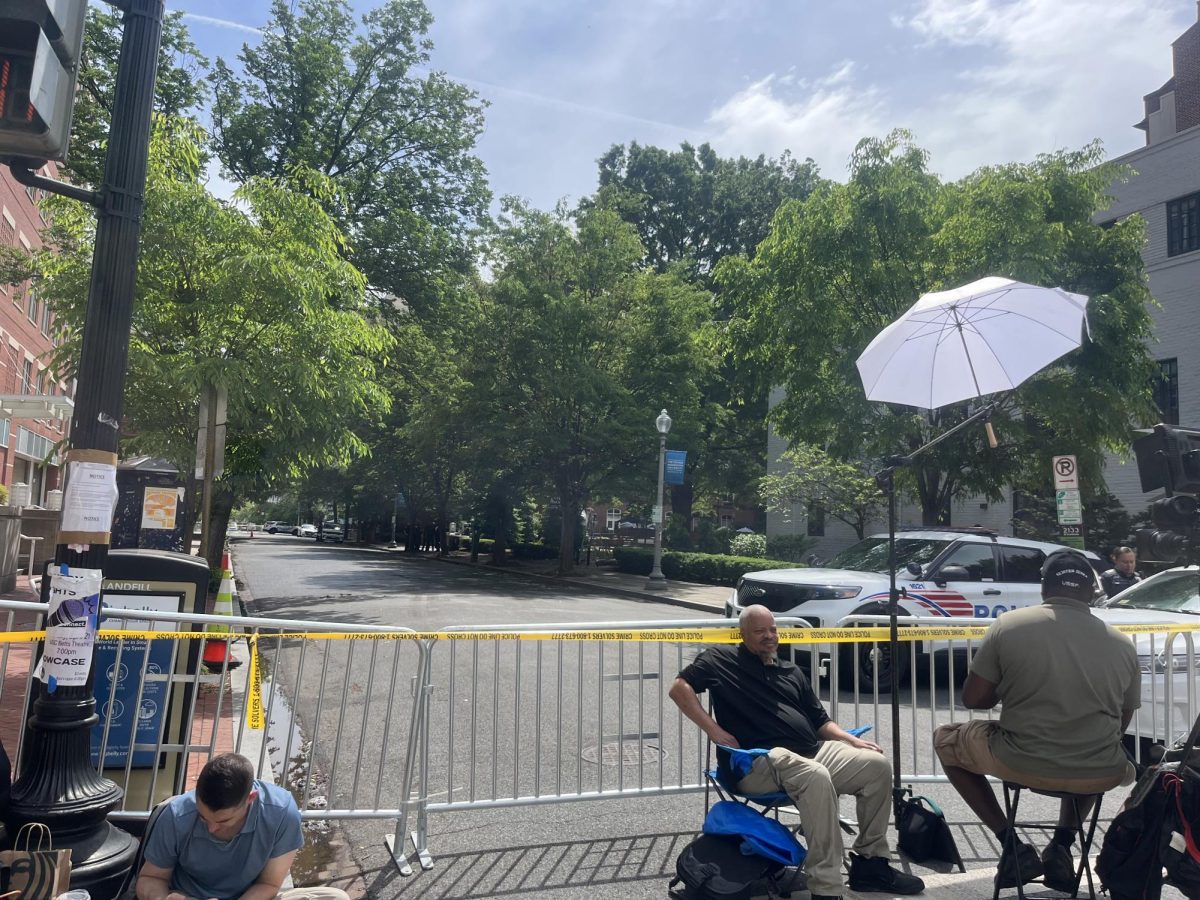Sarah Stewart Johnson, an associate professor in biology and the Georgetown University Science, Technology and International Affairs (STIA) program, received an award dedicated to scientists whose discoveries offer new insights into previously underexplored areas of study April 14 for her role in the search for life beyond Earth and on Mars.
Johnson accepted the 2023 Roy Chapman Andrews Society Distinguished Explorer Award — an annual prize that acknowledges innovative approaches in field work, including the methods, scope or subjects of a study — at the Beloit Public Library in Beloit, Wis. The award includes a commemorative statue.
Johnson joins a cohort of renowned scientists, including Robert Ballard, who discovered the Titanic, and Sylvia Earle, a marine biologist who holds the record for the deepest walk on the seafloor. Johnson delivered an acceptance lecture at the award ceremony titled “Contending with the Truly Alien,” in which she discussed the foreign nature of other planets.
Johnson is renowned within and outside the Georgetown community for her scholarship on astrobiology, which focuses on searching for traces of life beyond Earth and, in particular, Mars. Johnson is a former Rhodes scholar and White House fellow.
Johnson said that her work, which focuses on searching for life on Mars and the limits of life in Antarctica, is based on biological principles. These developments will help spaceflight, an application of astronauts to fly spacecraft into or through outer space either with or without humans on board.
“Despite massive advances in the last several decades, biology remains a largely descriptive science, in part because we only have one point of reference: life on Earth,” Johnson wrote to The Hoya. “Finding life on Mars, or anywhere beyond Earth, would be as revolutionary as any scientific breakthrough that’s ever been made.”
Johnson opened the Johnson Biosignatures Lab in 2015. The lab is dedicated to planetary analogs, which are locations similar to Earth’s Moon, Mars and asteroids, and biosignatures, which are any character, element, molecule, substance or feature that can be used as evidence for past or present life.
As part of the Johnson Biosignatures Lab, Johnson and her team of fellows have set up field sites in Antarctica, the Atacama Desert, Iceland, New Zealand and more. The data collected at these sites support the implementation of planetary exploration, the analysis of data from current spacecrafts and the innovation of new techniques for future missions.
Johnson received her doctorate in philosophy from the Massachusetts Institute of Technology and has worked on NASA’s Spirit, Opportunity, and Curiosity Rovers. Johnson is also a visiting scientist with the Planetary Environments Lab at NASA’s Goddard Space Flight Center.
Johnson’s recent book, “The Sirens of Mars,” was selected as one of the New York Times 100 Notable Books of 2020.
Zachariah John (SFS ’25), a STIA major, conducts independent research in Dr. Johnson’s lab regarding survival in extreme climate conditions.
“I am studying sedimentary samples from dried-up lava tubes in California as an analog for subterranean Martian environments, to see what kinds of life survive in those extreme environments,” John wrote to The Hoya. “Dr. Johnson has taken me in early and allowed me to flourish in the lab. I’m truly grateful to have her as a mentor; she has inspired and spurred me on all at the same time.”
Maggie Weng, a Ph.D. candidate in Dr. Johnson’s lab, said Dr. Johnson’s mentorship has helped her develop a greater appreciation of the field of astrobiology.
“Sarah’s mentorship has been a huge part of my growth as a scientist,” Weng wrote to The Hoya. “She is fearless in her pursuit of big ideas, even when they lead to challenges in the lab or the field. She is also a wonderful writer, and reading her non-technical work has inspired me on my own writing journey.”
Johnson said astrobiology fascinates her because it challenges the scientific world’s knowledge of the outer boundaries of life.
“Instead of thinking about life as we know it, we are thinking about how to detect life as we don’t know it. It’s a really interesting challenge, like trying to imagine a color you’ve never seen,” Johnson wrote.
John said he deeply appreciates Johnson’s mentorship and support.
“Dr. Johnson provides not only a very unique perspective in her wide swath of experiences and achievements, but she provides a helpful and compassionate personality among the faculty,” John wrote.















